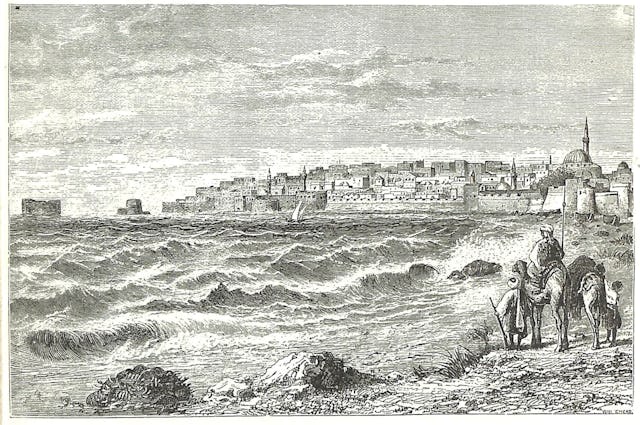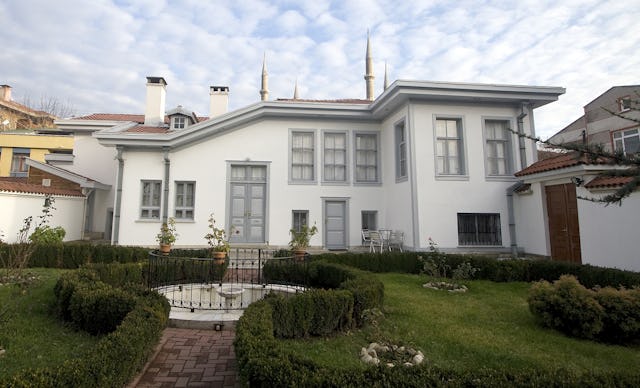Out of exile, a light to the world — 150th anniversary of Baha’u’llah’s arrival in Holy Land: Part 1
The Baha’i World News Service is publishing a series of podcasts about the 150th anniversary of Baha’u’llah’s arrival in the Holy Land. This brief article is the introduction to the first of the podcast episodes.
BAHA'I WORLD CENTRE — This week marks the 150th anniversary of the arrival of Baha’u’llah in the Holy Land, the last banishment in a series of exiles decreed by two monarchs. The Akka/Haifa area has since become the spiritual and administrative center of the Baha’i world, home to the community’s holiest sites.
Podcast: Baha'u'llah's arrival in the Holy Land: Part 1
This episode of the Baha’i World News Service podcast explores the context of Baha’u’llah’s banishment to Akka, His departure from Edirne, and the curious history of Akka and Haifa.
Subscribe to the BWNS podcast for additional audio content.
RSS | Spotify | Apple Podcasts | SoundCloud | Tunein | iHeart | Stitcher
“This exile was an act of oppression and injustice and persecution, but Baha’u’llah turned this act of oppression into a journey of humanity toward spirituality and freedom,” explains Nader Saiedi, Professor of Iranian Studies at University of California, Los Angeles. “This time becomes the main turning point in the mission of Baha’u’llah and, in a sense, a turning point in the cultural history of humanity.”
Baha’u’llah was banished from his homeland of Persia in 1853, initiating a series of exiles. The Persian and Ottoman governments thought that by sending Baha’u’llah to a far-off prison, they would extinguish the light of His religion.
On 12 August 1868, Ottoman troops surrounded Baha’u’llah’s house in Edirne, known at that time as Adrianople, and authorities told Him he was banished again. To where, they would not say. It was almost two weeks later, after Baha’u’llah and His companions had begun their journey, that they learned their destination: Akka, an ancient prison city in Ottoman Palestine, known also as Acre.
“Acre became for the Ottomans a place where, first of all, they had a prison for criminals, and then, a place for exile of all kinds of people who they thought should be watched over. The Baha’is were of that category,” explains Professor David Kushner, a historian who specializes in the Ottoman Empire.
Akka was a historic city that had passed through the hands of several civilizations and was once a prominent center in Ottoman Palestine. By 1868, however, the Ottomans used it as a prison colony, a desolate city where Baha’u’llah was sent to be forgotten.
Now, thousands of Baha’is visit the Akka/Haifa area every year for pilgrimage, an act of devotion to the life and teachings of Baha’u’llah.

